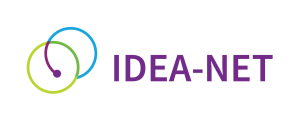Korea Advanced Institute of Science & Technology (KAIST) – Daejeon, South Korea
Among equity groups that are supported by the Korea Advanced Institute of Science & Technology (KAIST) Social Inclusion Committee are persons with disabilities, low-income students, first generation students, students/staff with a refugee or migrant backgrounds, LGBTQ students/staff, staff/students of colour, and others. The initiative to support these equity groups came from the groups themselves. The institution does not have access targets.
In the last two years the office carried out various activities with regard to equal access/inclusion/diversity, namely:
- Support and counselling for students and university staff,
- Lectures, workshops, seminars for students, faculty and non-teaching staff,
- Statement releases
In addition to activities to support inclusion, the office issues recommendations/guidelines to counter exclusionary and discriminatory practices at the university.
A number of professors put up a team effort and initiated a study on campus-wide policies to better protect victims of violence and to prevent such cases. The result of the study suggested an implementation of a committee to streamline the creation of an inclusive culture, the handling of violence cases, and the construction of a systematic effort in protecting victims of violence. More than six months of ongoing explanation and persuasion were crucial factors for institutional leadership in deciding to establish the office.
Years of trust and engagement with members’ challenges make this office a successful programme.
The office is not governed by national policy.
The office is composed of one committee chair and nine committee members. Diversity, inclusion, and equality are explicitly mentioned both in office and in the university’s strategies, policies, work plans etc. The decisions about the committee design are made internally among the members of the committee. The office is not part of the networks.
The main challenge for the success of the programme has been explaining and persuading the majority while representing the minority. The main obstacle to ensure the long term stability of the programme is the possibility of a sudden change of mind by the president or vice president of KAIST.
The office has stable funding, provided by KAIST.
The office does not have a formal evaluation.
IDEA-net: Expanding the network of Inclusion, Diversity, Equity and Access (IDEA) practitioners in higher education through institutional capacity building
Project ref: 2022-1-NL01-KA220-HED-000089789

This project has been funded with support from the European Commission. This website reflects the views only of the authors, and the Commission cannot be held responsible for any use which may be made of the information contained therein.

